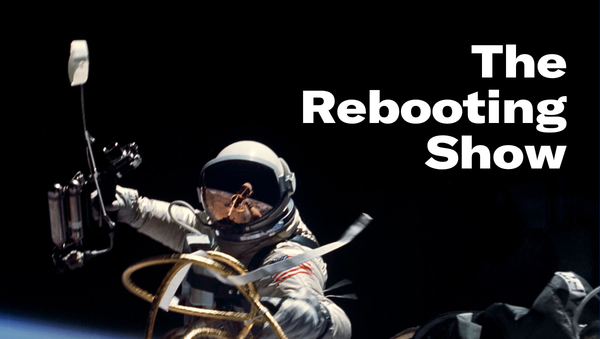Turnarounds
TMB's Bonnie Kintzer on remaking a magazine brand
We tend to like prodigy stories. We like the young startups who achieve success rapidly, seemingly going from strength to strength. The reality, of course, is usually messier, with the line between success and failure fuzzier. There’s also a different model: the turnaround.
Publishing is filled with formerly formidable brands and businesses that have fallen on hard times. Look no further than magazines. That’s why the success of Zillah Byng-Thorne at Future and Neil Vogel at Dotdash stand out. This week, I talked turnarounds with Bonnie Kintzer, the CEO of TMB, the home to Readers Digest and other lifestyle brands. Bonnie returned to Readers Digest in 2014 – she’d previously worked for the company for nearly a decade – in 2014, becoming its fourth CEO in three years as Readers Digest Association had emerged months earlier from its second bankruptcy.
After renaming the company Trusted Media Brands, recently shortened to TMB, Bonnie set out to decisively shift the company to a digital model while diversifying its focus to include its other lifestyle brands, such as Taste of Home and the Family Handyman. TMB added Jukin Media, bringing its streaming and video capabilities as well as brands like FailArmy and The Pet Collective.
“I had multiple steps that I shared with the entire company. Did we have the right people? Did we have the right culture? Did we have the right assets? Were there assets that we should bring into the company? What did we need to stop doing? Because I think when you're doing a turnaround, you have to really have an incredible amount of focus.”
Here’s Bonnie’s three principles for a turnaround:
Enjoy the process. Turnarounds can be grinding affairs, filled with their fair share of downs along with the ups. “You have to be a certain kind of person to like turnarounds, and you have to surround yourself with those kinds of people,” Bonnie said.”
Be decisive. Tough decisions are inevitable. Putting them off isn’t going to make them any easier.
Over-communicate. Change is hard and understandably unsettles people. “When I first got back, people didn't believe that we could do it,” she said. “It was about constant communication and proof points that all of a sudden people [believe] we can do it.”
Check out the full episode on Apple Podcasts and Spotify. If you’re an Apple user, please leave a rating and review.

Subs + ads
I joked the other day that the first step to starting an ad business as a publisher is saying you won’t run ads. There are problems with advertising and digital publishing, mostly from the misaligned incentives that often put the audience last. That’s why many subscription-focused publishers have presented their business models as in opposition to ad-dependent models that in many cases become adversarial and lead to bad practices and poor product experiences.
But as I’ve kept saying, I don’t think ads are a bad business model, particularly in conjunction with a subscriptions base. I was glad to see Isaac Saul at Tangle, a successful politics newsletter, announce Tangle would soon introduce advertising to its free newsletter, which has 50,000 subscribers. Business logic drives this outcome. Subscriptions are a great way to focus a publisher on treating the audience as customers, not a resource to be milked. That will end up creating a better ad product, since the tradeoff to alienating readers is far higher than in a pure ad model dependent on fly-by traffic from search and social.
Isaac presented the decision as something of a concession, but I’m not sure it has to be. There is audience value being created by Tangle and making money from unobtrusive ads is a legitimate and expected tradeoff. Introducing ads to products that are exclusively paid is a tougher proposition. In my conversation last week with Platformer’s Casey Newton, I advocated for him to consider running ads. To me, the downside isn’t so much on the audience front – people getting the free version of a paid newsletter won’t freak out over a couple ads – but more figuring out the internal organization. Running ads means selling ads, reporting results, client service and more. That’s where the product can suffer for independent and small-scale publishers.

Much of the trepidation of mixing subscriptions with ads comes down to confusing a business with contradictory goals. House of Kaizen collaborates with publishers worldwide to build more sustainable businesses with best practices and experimentation for better acquisition, retention and lifetime value. Matt Cronin, founding partner of House of Kaizen, believes goal alignment is critical:
If there are multiple definitions of success across your team, customers and collaborators, you’ll never be able to achieve it. Sustainable growth comes from delivering on both the subscribers’ goals and business goals throughout each stage of the product journey. We call this goal alignment, and our clients have referred to it as business therapy. Customer research reveals the subscriber goals while introspection clarifies the company goals, then KPIs can be defined to represent measurable success for both parties throughout the journey. When the KPIs don’t align with the customer’s values and motivations, then the growth strategy will not be sustainable
Learn more about how House of Kaizen helps publishers with goal alignment to build sustainable subscription strategies – and get in touch with Matt directly.

WTF is a media company now?
On this week’s episode of the People vs Algorithms podcast, Troy Young and I discuss just what makes a media company now, and how it is completely different than what came before. It’s more about understanding digital culture, it’s more personality driven, and it is very often not about the quest for eyeballs to show ads, or even to sell subscriptions. Troy argues that the old methods of understanding the total addressable market are less relevant in an environment where understanding the “flow” of where to sit in the currents of digital culture is more of a competitive advantage than anything else. Give it a listen on Apple Podcasts and Spotify. Send me feedback (and questions/comments for a “mailbag” segment): bmorrissey@gmail.com.

Recommended
One of the major flaws of capitalism is the booms and busts that inevitably happen with business cycles. The Weird Economy continues this trend. We are likely moving from an economy marked by profound shortages everywhere to one of oversupply, as the economy slows in the face of rising interest rates. This whipsaw effect will take place in the employer-employee relations. As layoffs inevitably become the next step in cost cutting, although the last resort most times, employers will wrest back power they begrudgingly gave up during the pandemic, going back to the approach of viewing a job as “a privilege, not a right.”
Free food is always the first to go in a downturn. No surprise that Bloomberg is cutting off free lunches, although the snacks remain. Companies tend to cut things that don’t hit core operations, so perks, schwag and travel will get cut, along with marketing expenses and unprofitable new ventures.
Unfortunately, more layoff stories are coming. Recurrrent cut a bunch recently as its rollup strategy runs into the typical problem of rollups: Accumulating assets is one thing, putting in place an efficient operating infrastructure is a different challenge, made all the more difficult by each asset having different DNA.
Search could get interesting again. I discussed this topic a bit with Troy Young on the People vs Algorithms podcast. The search experience, for all the innovations that have taken place over the last 20-plus years, hasn’t changed very much beyond its original “10 blue links” format. Google is signaling that like any good tech platform it will adapt to changing behaviors. The big unknown is what the modern search experience will be like, considering how much media formats and behavioral patterns have shifted. One place to look is the experience of China, where video search is a reality, not a theoretical.
Product people and marketers love personalization. I understand the desire to find a way to tweak the product to get incremental performance gains while, basically, making the same product. I’ve sat in many meetings discussing these approaches. And I was always left finding them mostly wasteful, because the performance gains were rarely worth the effort, particularly when that effort could be better spent making a superior product. The juice is rarely worth the squeeze.
The line between optimization and cheating is exceedingly thin. Incentivized podcast downloads, in the grand scheme of digital media hijinx, doesn’t rank very high. It’s like not nearly doubling the weight of your walleye to win a fishing tournament. But what it does is continue to chip away at the credibility of digital media channels. The current difficulties in directly attributing digital marketing spending is hurting spending levels, without a doubt. But advertisers have put up with bad measurement in media like TV for decades. Despite its meteoric growth, digital media doesn’t have the same level of confidence. And the many ways to fudge numbers are part of that.
Good reporters are a different breed. They have near psychopathic tendencies that feed an insatiable need to break news. Maggie Haberman is a throwback reporter.
If you were starting Morning Brew today, it would look a lot more like what Kyla Scanlon is doing. Kyla is building something very interesting, using memes, funny videos and regular essays to make economics more “human-centric,” as she put it on Derek Thompson’s excellent Plain English podcast. Subjects like economics, finance, health – even ad tech – don’t have to be discussed in a dry, convoluted way.
My general belief is nearly everything is more boring up close than it seems from the outside. Case in point is Elon Musk and his circle of buddies batting around ideas about what to do with Twitter. I’m not sure it’s a reason to think billionaire types are “dumb” or scattered in their thinking, it’s more that, for all the lionization of successful people, they’re just (extremely egotistical) people, down to Musk’s petulant “what did you get done this week” snipe. (I was most surprised that Musk texts with my former boss, Jason Calacanis.) I doubt many of us would come across as geniuses if our text messages were released. We can imagine this, in fact. Just open Twitter.

Thanks for reading. If you aren’t already on the list, sign up to get The Rebooting every Tuesday and Thursday.
Please share The Rebooting with a colleague you believe would find it valuable.
For sponsorship inquiries, check out the sales kit and get in touch: bmorrissey@gmail.com.




